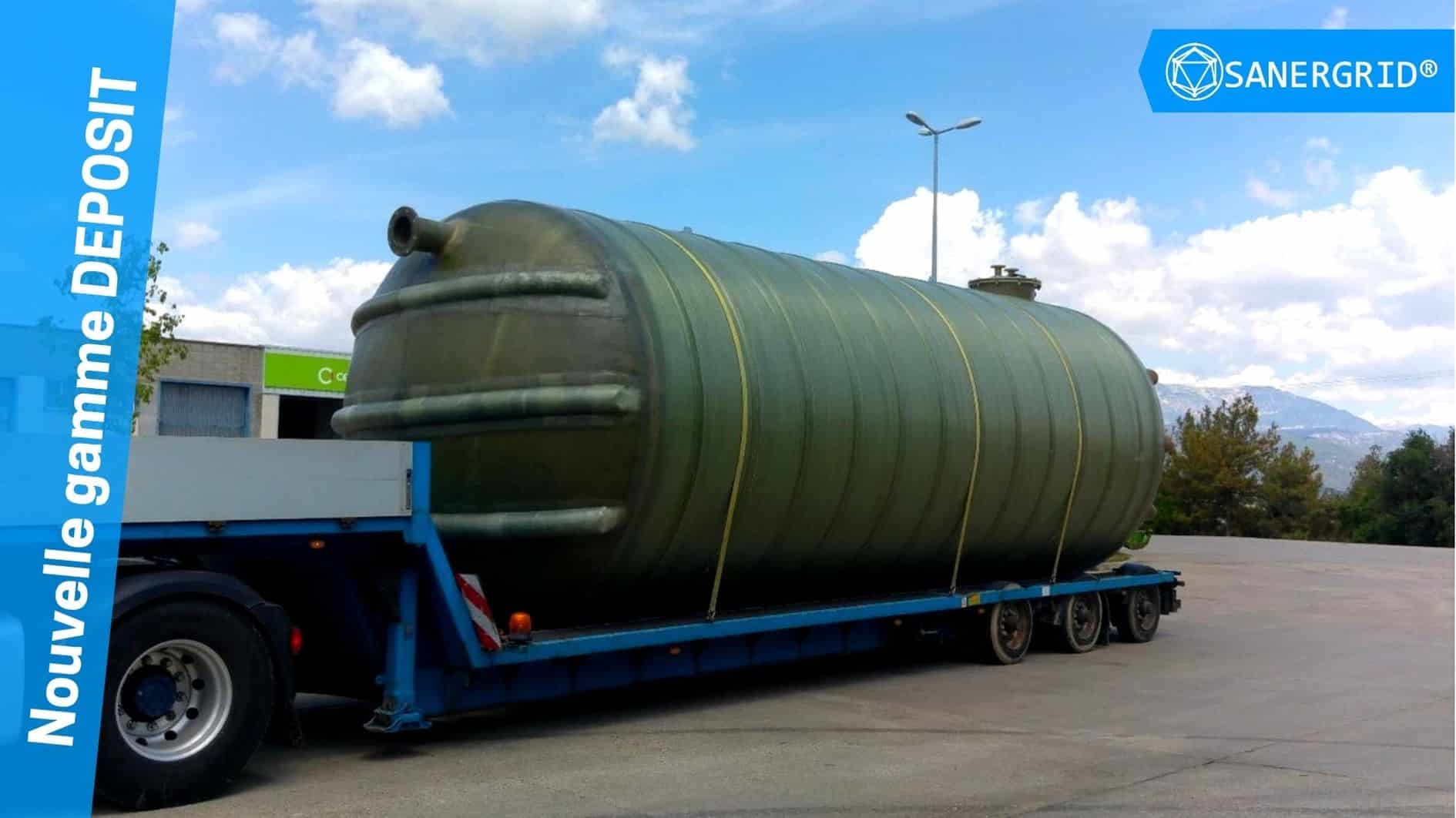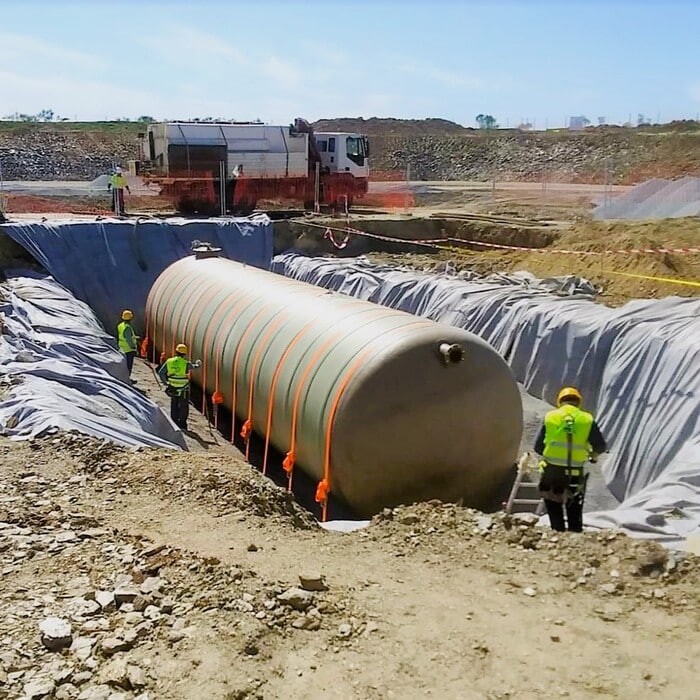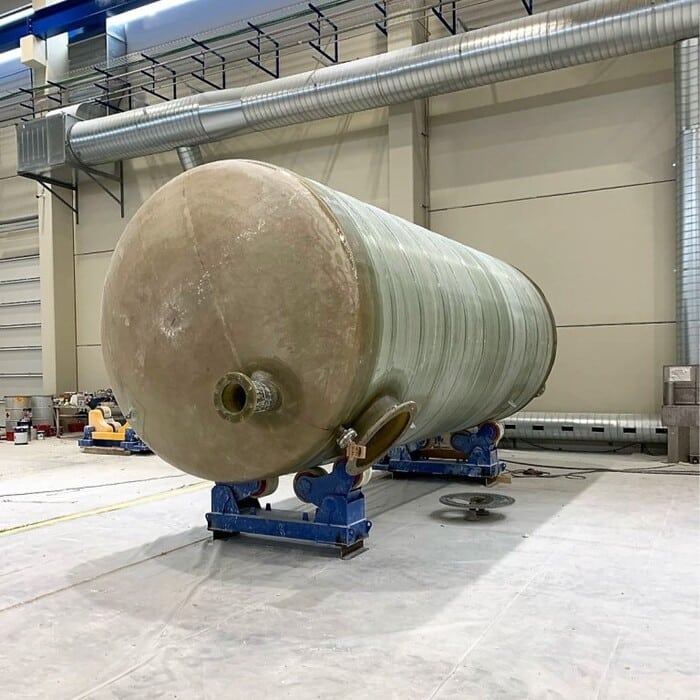In order to build more quickly your remotepits in substation, we launch the DEPOSIT® range.
We have developed DEPOSIT® pits to meet all the requirements of rapid construction, permanent assurance of their watertightness and
Solution:
The DEPOSIT® range has been specially designed to meet the 5 issues of a buried remote pit for oil power transformer using the principle of fluid separation. We guarantee:
– The total retention of the dielectric oil,
– Water and oil tightness,
– Decantation and separation of water and oil,
– The evacuation of rainwater and extinguishing water (firemen, sprinklers, flood) in case of emergency,
– And the resistance to hot transformer oils.
In addition to retention volumes, the DEPOSIT® range is available in 3 standard configurations:
– Single chamber remote tank (Mono Volume): DEPOSIT®-MV range,
– Single-chamber remote tank for the storage of emergency fire water (Deluge Water): DEPOSIT®-DW range,
– Triple volume tank: DEPOSIT®-TV range.
Made of reinforced fibreglass and double-walled, the pits are constantly pressurised and monitored by a pressure gauge to detect any leak or loss of watertightness. In the event of a rupture in one of the walls, the pressure drop between the two layers allows the problem to be identified from the surface.
In order to guarantee a high level of reliability and quality, all our pits are manufactured according to ISO 9001 standards and meet the requirements of NF EN-13121, NF-EN 976-1, NI 50-20-04(4-0), NF-EN ISO 14125 and UNE-EN ISO 75-30.
At the end of the manufacturing process, the tightness is tested in the factory by applying a negative pressure in the double wall of each DEPOSIT® pit in order to create a vacuum and measure the possible leakage: this air test method is much more reliable than a water test.


